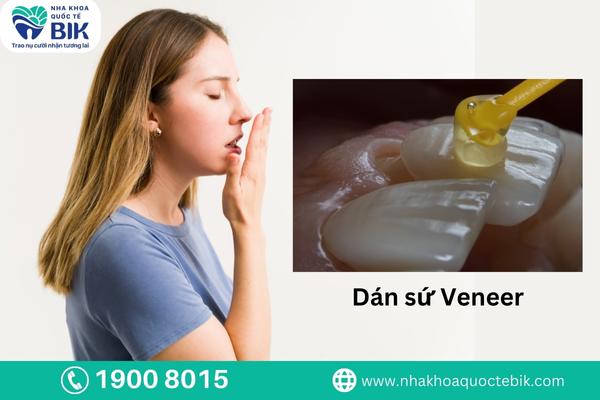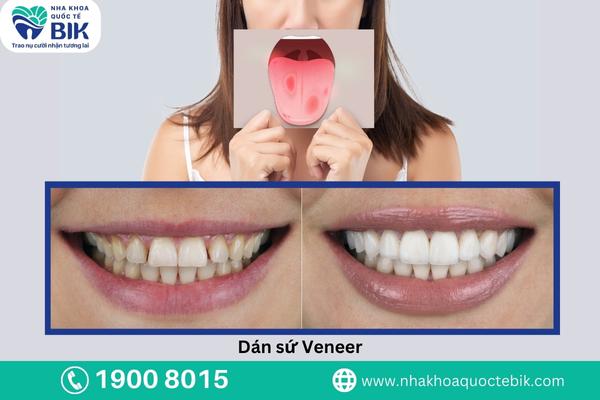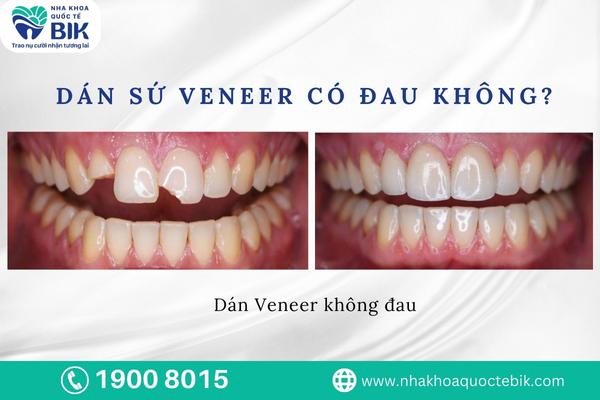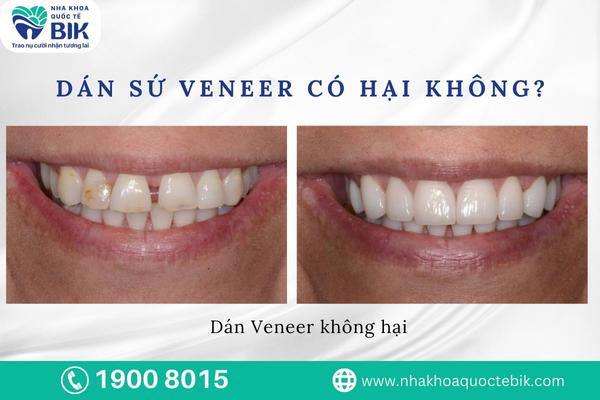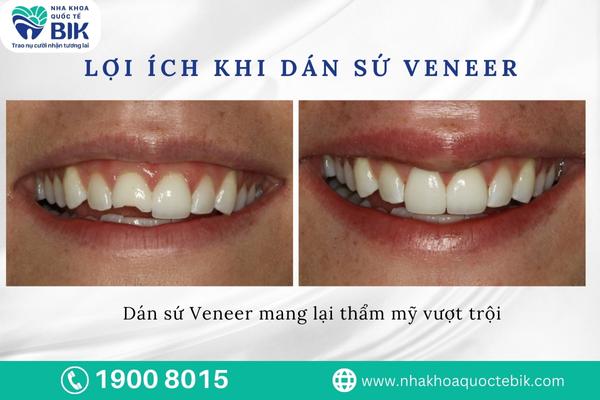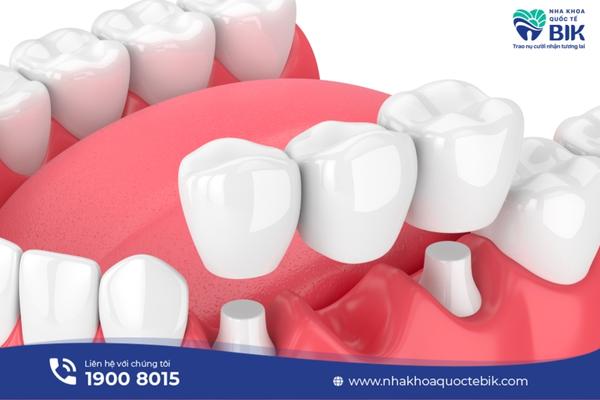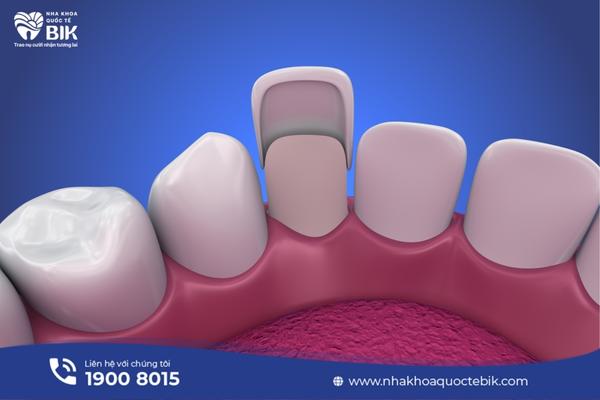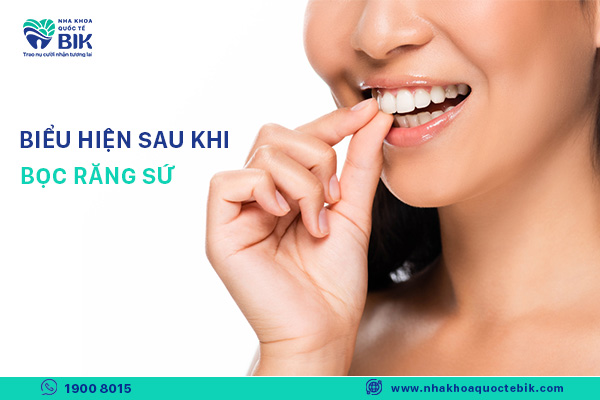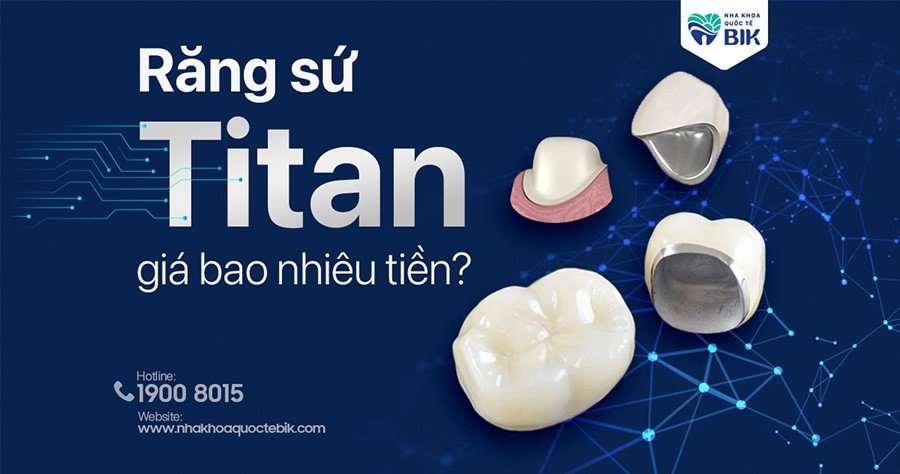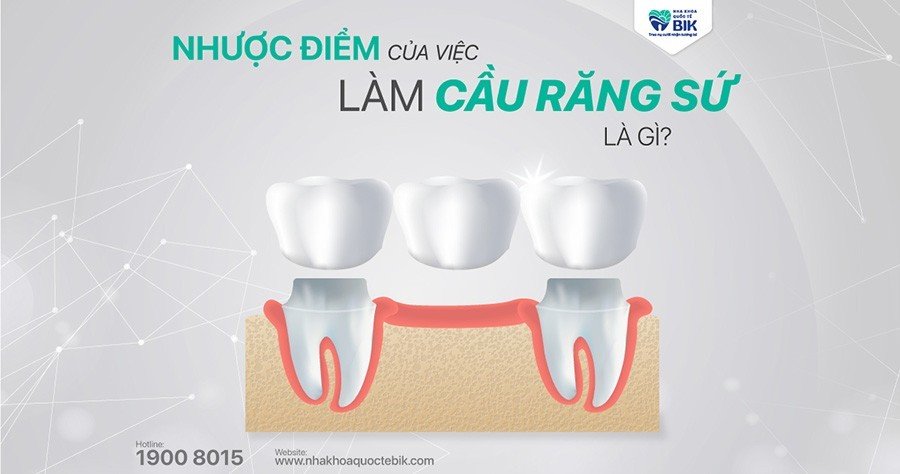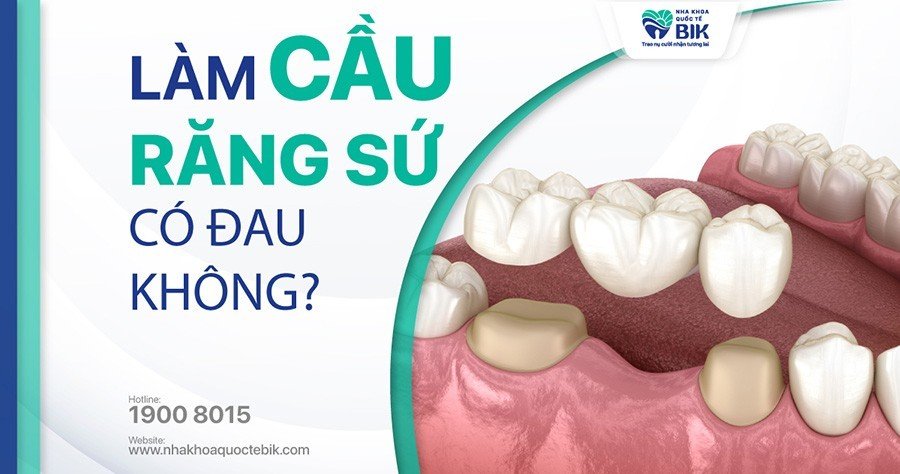
Whether or not porcelain veneer causes bad breath depends largely on the doctor’s porcelain veneer technique as well as the quality of the porcelain used. Porcelain veneer is one of the cosmetic restoration techniques for teeth with the criterion of preserving maximum real tooth enamel and is chosen by many people today. According to experts, if customers have bad breath after porcelain veneer, the reason is that the doctor did not perform the technique correctly or the veneer used is not genuine.
1. Does Veneer Porcelain cause bad breath?
Veneer Porcelain is a cosmetic restoration method for teeth that has become quite popular in recent years thanks to its outstanding advantages. To achieve both aesthetic and functional advantages, Veneer is manufactured using the most modern 3D CAD/CAM technology available today. The veneer is super thin, only 0.3 – 0.5mm thick and will be fixed to the tooth surface with a specialized adhesive material.
Experts have confirmed that porcelain veneer will not cause bad breath if performed correctly and the doctor’s operations do not have any errors. If after porcelain veneer, the breath has an unpleasant odor, the cause is that the porcelain veneer process is not performed in the correct order or the quality of the veneer is not guaranteed.
2. Causes of bad breath when applying porcelain veneers
The unpleasant smell of breath that appears after applying porcelain veneers can be due to the following reasons:
2.1. Improper porcelain bonding technique
If porcelain veneer bonding is performed by a doctor with low professional skills and incorrect operation, the veneer may not be attached in the correct position, not close together, thereby creating gaps that are unsightly, difficult to clean and affect daily life.
These gaps are a favorable environment for food particles to gradually accumulate, bacteria will begin to appear. They develop and form nests, plaques in the oral cavity, causing oral problems such as gingivitis, tooth decay, … causing bad breath.
2.2. Porcelain veneers are loose
Porcelain veneers are fixed on real teeth with specialized adhesive materials. Due to the impact of long-term chewing force, the veneers may be misaligned, creating gaps with real teeth. At this time, food and bacteria will accumulate in the veneers, causing bad breath.
2.3. Do not treat the disease before applying porcelain veneer

Some oral diseases such as tooth decay, gingivitis, periodontitis, pulpitis, etc. need to be thoroughly treated before applying porcelain veneer. These diseases, if left untreated for a long time, can cause teeth to bleed easily, causing pain and bad breath.
In addition, there are some cases where patients have bad breath after applying porcelain veneers, but it is not due to the effect of this method but because of diseases such as diabetes, sinusitis,… or diseases related to digestion.
2.4. Poor quality porcelain veneers
Bad breath can also occur because the porcelain veneers used are not made from quality porcelain materials but are mixed with many impurities. After a period of use, it will cause irritation to real teeth and gums, gradually causing bad breath in the oral cavity.
2.5. Poor oral care
Not performing oral hygiene regularly or incorrectly will cause leftover food particles to stick to the teeth. From there, harmful bacteria will grow and develop, causing bad breath.
3. How to avoid bad breath after applying porcelain veneer
To avoid bad breath after applying porcelain veneer, customers should note the following:
3.1. Choosing a reputable dental clinic
Not only for porcelain veneers, but choosing a reputable dental facility is a prerequisite when performing any dental service. When choosing a quality dental facility with a team of good doctors and experts, the porcelain veneer process will take place safely, thereby making customers feel more secure.
3.2. Using genuine, quality porcelain veneers
Choosing quality porcelain veneers not only affects the effectiveness of porcelain veneers but can also prevent bad breath. Porcelain veneers need to be guaranteed to be genuine and have a warranty card from the manufacturer to avoid irritation affecting oral health.
3.3. General oral examination before porcelain veneering
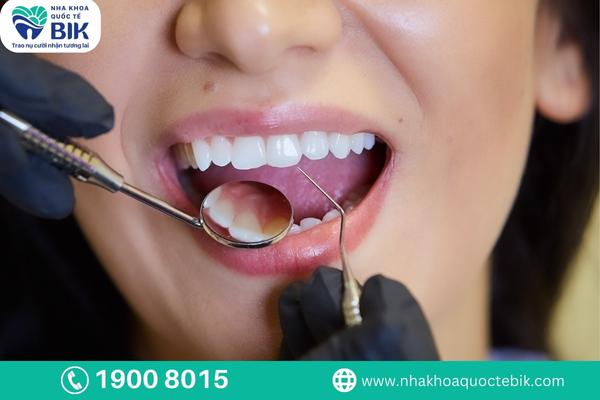
Regardless of the intention to perform any dental restoration method, customers still need to thoroughly treat oral diseases. Treatment will make the porcelain veneering process longer, but can prevent many complications later, including bad breath that causes loss of confidence when communicating.
3.4. Pay attention to oral hygiene after porcelain bonding
Even after completing the porcelain bonding process, if you do not follow a proper oral hygiene regimen, bad breath can still occur. Customers should brush their teeth at least twice a day with a soft-bristled toothbrush, combined with dental floss to completely remove food debris in between teeth, avoiding creating conditions for bacteria to grow.
3.5. Regular dental check-ups
A regular dental check-up every 6 months is necessary for everyone, helping to promptly detect and treat oral diseases if any. In addition, customers can use dental scaling services to remove tartar, which is one of the leading and most common causes of bad breath.
4. Does Veneer Porcelain Hurt?
When performing modern Veneer porcelain bonding technology with the criterion of maximum preservation of real teeth, the doctor will only affect a little enamel on the outer surface of the tooth. During the porcelain bonding process, due to the support of local anesthetic, the customer will not feel anything. However, after the drug wears off, pain and soreness may begin to appear, and the amount of pain depends on each person’s constitution.
Because the amount of enamel that needs to be ground when applying porcelain veneers is very small, the feeling of pain will be much more pleasant than when applying porcelain veneers. Normally, this uncomfortable feeling will last for about 2-3 days or longer, but not more than 7 days. If this condition lasts for a long time and shows no signs of improvement, customers should go to the dentist for timely examination and treatment.
5. Is porcelain veneer harmful?
In theory, porcelain veneer is a cosmetic restoration technique for teeth that has been proven to be completely safe and does not cause any harmful effects on oral health in particular and overall health in general. The porcelain veneer surface is only a few mm thick, so the enamel is not worn away too much when performing porcelain veneers, thereby preventing the risk of tooth structure and pulp being invaded. In addition, the porcelain veneer is made from high-grade porcelain material, so it has high biocompatibility and does not cause irritation during use.
However, in reality, if the porcelain veneer is performed incorrectly by a doctor with poor skills and expertise, lacking professional experience, the rate of complications and harmful effects after porcelain veneers is very high. Some serious consequences include: tooth decay, periodontitis, pulpitis, gum allergies, broken teeth, chipped teeth, tooth sensitivity, etc.
6. Benefits of Veneer Porcelain
Veneer porcelain can bring the following outstanding benefits:
6.1. High aesthetics
Veneer porcelain is very thin, designed with tooth grain details and natural color, so it can bring very high aesthetics. In addition, high-quality porcelain materials will also create a certain transparency and gloss for the teeth, which makes the teeth more natural, making it difficult to distinguish which are real teeth.
6.2. Improve chewing ability
Although it is thin and light, it does not mean that Veneer porcelain cannot ensure normal chewing function. With a strength 2-3 times that of real teeth, customers with Veneer porcelain can still comfortably eat their favorite foods without worrying about their teeth cracking or breaking.

6.3. Maximum preservation of real teeth
Thanks to the ultra-thin thickness, only 0.3 – 0.5mm of the porcelain veneer, when performing this method, the doctor only needs to remove a very thin layer of enamel to create roughness to firmly attach the veneer to the tooth surface without worrying about slipping or peeling during chewing. This helps to limit the situation where the structure and pulp of the real tooth are invaded during the tooth grinding process.
So the Veneer porcelain bonding method will not cause bad breath if performed properly by a good doctor, with professional qualifications as well as many years of experience in the profession. Therefore, choosing a reputable dental facility is an issue that should be prioritized and carefully considered before applying Veneer porcelain to ensure the desired effect and avoid complications later.

